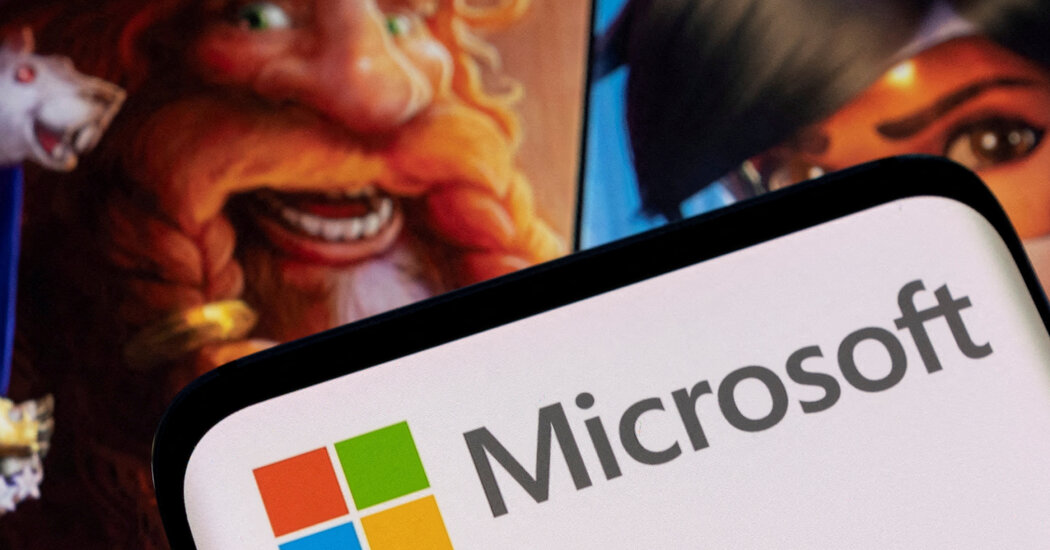Microsoft scored a major victory on Friday in its long-running effort to buy the video game company Activision Blizzard, as British authorities signaled they would approve the deal after the companies took action that “substantially addresses” remaining antitrust concerns.
Britain’s Competition and Markets Authority is the last major agency that must sign off before Microsoft can complete the $69 billion acquisition. The regulator initially tried to block the deal, saying it would undercut competition in the game industry, but reversed course after Microsoft agreed not to purchase a part of Activision’s business associated with so-called cloud gaming.
First announced in January 2022, the acquisition has been heavily scrutinized by antitrust officials around the world and held up as a test of whether regulators would approve a tech megamerger amid concerns about the industry’s power.
“The C.M.A. considers that the restructured deal makes important changes that substantially address the concerns it set out in relation to the original transaction earlier this year,” the agency said in a statement on Friday.
The regulators said they are now holding a “consultation” through Oct. 6 about the remedies Microsoft has proposed before making a final decision on whether to approve the deal.
Microsoft, with experience in thorny antitrust disputes going back to the 1990s, was able successfully navigate its way through stiff regulatory resistance on both sides of the Atlantic. The company is now poised to combine its Xbox business with Activision, a maker of such hit video games as Call of Duty and World of Warcraft.
“We are encouraged by this positive development in the C.M.A.’s review process,” Brad Smith, the president of Microsoft, said in a statement. “We presented solutions that we believe fully address the C.M.A.’s remaining concerns.”
Britain is the last holdout after a July ruling in the United States that stymied an effort by the Federal Trade Commission to block the deal. The European Union, typically an aggressive regulator of American tech firms, cleared the deal in May.
British regulators initially blocked the deal because of concerns a merger between the maker of a top-selling console with the publisher of hit games threatened to stunt the development of the emerging area of cloud gaming technology. Although still a very small market, the technology allows people to stream games on phones, tablets and other devices, diminishing the need for traditional consoles.
Microsoft agreed to transfer the cloud streaming licensing rights for all current and new Activision Blizzard games to Ubisoft Entertainment, a rival game publisher. The arrangement lasts for 15 years, a move seen as preventing Microsoft from releasing Activision games exclusively on its own streaming service.
“We look forward to working with Microsoft toward completing the regulatory review process,” Activision Blizzard said in a statement.
The companies have said they intend to close the deal by Oct. 18.


